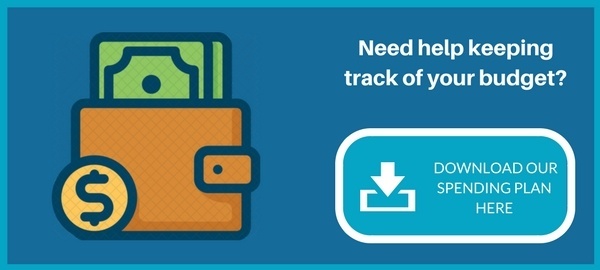Save Money
5 Questions to Ask Yourself When Creating A Budget

While we recognize that not everyone finds budgeting as enthralling as we do, taking control of your finances can have substantial benefits which can set you up for success in other aspects of your life, such as retirement.
Did you know, budgeting is known to reduce stress, and some people even credit budgeting for saving their marriage?
When going through your spending plan, remember to ask yourself a few simple questions:
Is your budget realistic?
While there are aspects of your monthly spending you can’t immediately control (rent/mortgage for example), take a look at your non-fixed costs. Are they in line with how you spend? Did you allot $100 for dining out, when you typically spend no more than $60? Did you only set aside $20 for coffee when you’re pretty sure the baristas would file a missing persons report if you stopped showing up for your daily cup? One of the key steps to budgeting is to be as honest and realistic with how you spend and align your budget with your priorities.
How is your emergency fund?
One of the biggest budget busters is an unforeseen emergency, such as illness or job loss. Besides reducing stress, building a substantial emergency fund can help protect you when unexpected costs arise and prevent the need to turn to loans and high-interest debts to cover your expenses. At AFS, we recommend a single-person household have the equivalent of at least 6 months of expenses saved in their emergency fund.
Have you identified your wants vs. your needs?
We all have our personal list of the items we want, and the items we need. Just as you
need to ensure your budget is realistic, you also need to critically analyze how you are prioritizing your spending plan. Typically, we recommend beginning with your fixed expenses (rent/mortgage/car payments/insurance/etc.), and working your way down to your “wants” (dining out, entertainment, vacations, etc.).
Did you pinpoint short, medium, and long-term goals?
One of the greatest benefits of budgeting is that it allows you to break down your goals into manageable steps. Short-term goals are ones that you hope to accomplish within the next year, such as purchasing concert tickets for your favorite band, buying a new computer, or working to pay off your credit card balances. Medium-term goals are those that look out over the next one to three years, like purchasing a car, saving for a down payment on a house, or planning a big event, such as a wedding or an epic vacation. Long-term goals are your overall life goals. Think about what you want your retirement to look like. How many years is it going to take to pay off the mortgage on your home? By allotting a portion of your monthly budget to go into a designated “goal” fund, you’ll find your goals are much more manageable, and you might even find them faster to achieve.
Did you leave some room for fun?
One of the main myths surrounding budgeting is that it removes all of the fun out of your life. However, by including room for fun in your spending plan, you’ll find it’s not as painful as society would make you think, and it may actually even be a bit liberating. When you build your budget to include that daily cup of coffee or monthly movie tickets, you’ll find you can enjoy these pleasures guilt-free, knowing that you are spending the money you’ve already allocated within your monthly spending plan.
Overall, remember that no two people have the same budget, and by formatting your spending plan to fit your lifestyle, you’ll find that the benefits will last you well into the future.
Read the full article here

-

 Side Hustles6 days ago
Side Hustles6 days agoWhy the Best CEOs Think Like Anthropologists
-

 Make Money7 days ago
Make Money7 days agoEarn More in 2025: Top 10 High-Yield Savings Accounts Revealed
-

 Side Hustles4 days ago
Side Hustles4 days agoThis User-Friendly H&R Block Software Package is Only $40, While Supplies Last
-

 Side Hustles7 days ago
Side Hustles7 days ago10 Roles That Are Surprisingly Well-Suited for Outsourcing
-

 Side Hustles7 days ago
Side Hustles7 days agoWhat to Do If TikTok is Banned — How to Protect Your Brand
-

 Passive Income7 days ago
Passive Income7 days agoHow Pets Can Promote Better Health and Well-Being in the Workplace
-

 Investing4 days ago
Investing4 days agoTikTok faces US ban deadline as users brace for fallout By Reuters
-

 Personal Finance7 days ago
Personal Finance7 days agoBiden cancels more student loans with one week left to his term


















